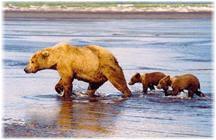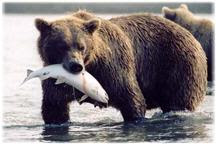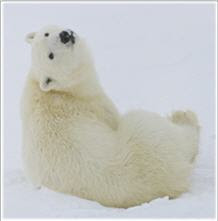Harbor seals are well adapted to life in the sea. They
are able to dive to depths up to 1640 feet (500m) and can
remain submerged for over 20 minutes, although most dives
are less than 65ft (20m) and less than 4 minutes long.
Oxygen-conserving adaptations that allow such dives
include high blood volume, reduced peripheral circulation,
reduced heart rate, and high levels of myoglobin
(oxygen-binding protein in muscle).
Harbor seals haul out of the water periodically to rest,
give birth, and nurse their pups. In winter seals spend up
to 80% of their time in the water. In spring and summer
they spend more time hauled out during pupping and molt
season. Harbor seals molt annually, usually in summer;
timing of molt depends upon sex and age class.
Subscribe to:
Post Comments (Atom)






 Alaska Time
Alaska Time









































No comments:
Post a Comment